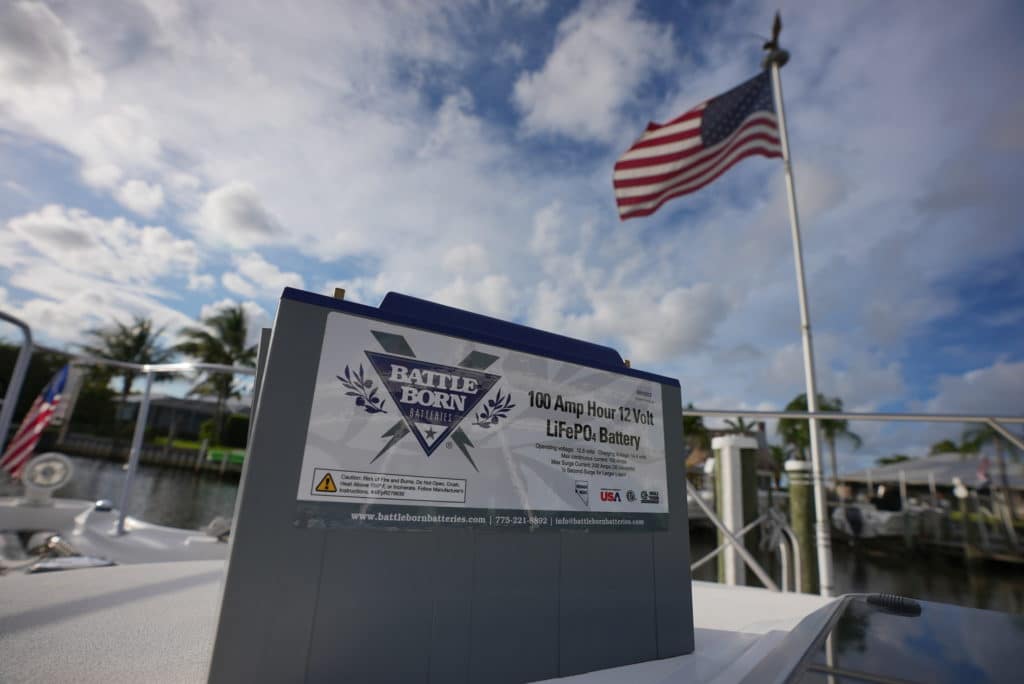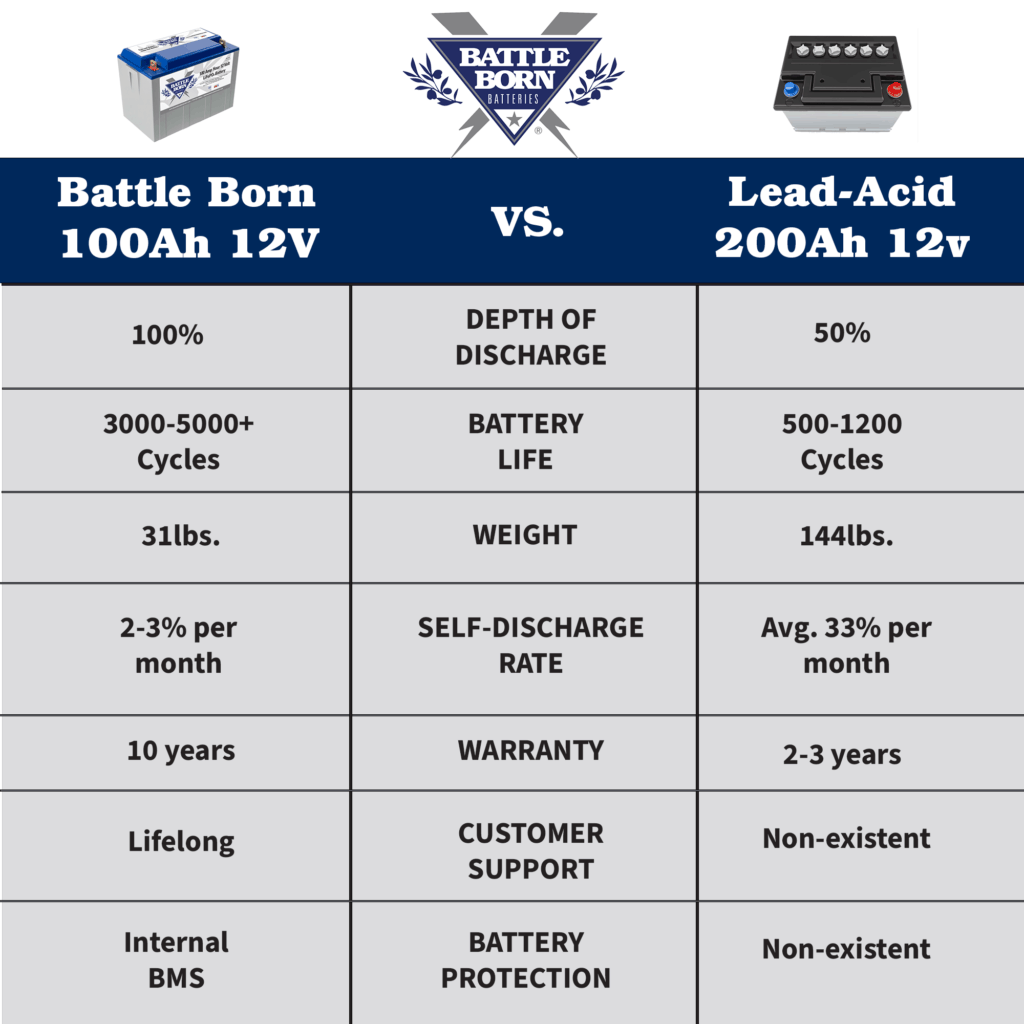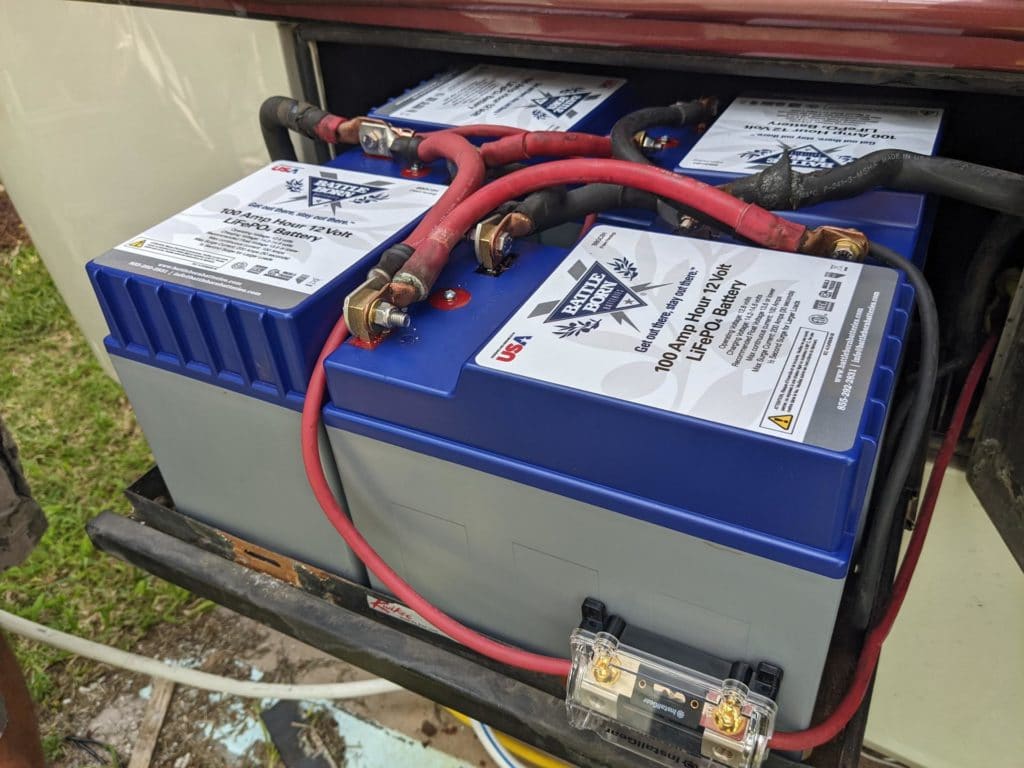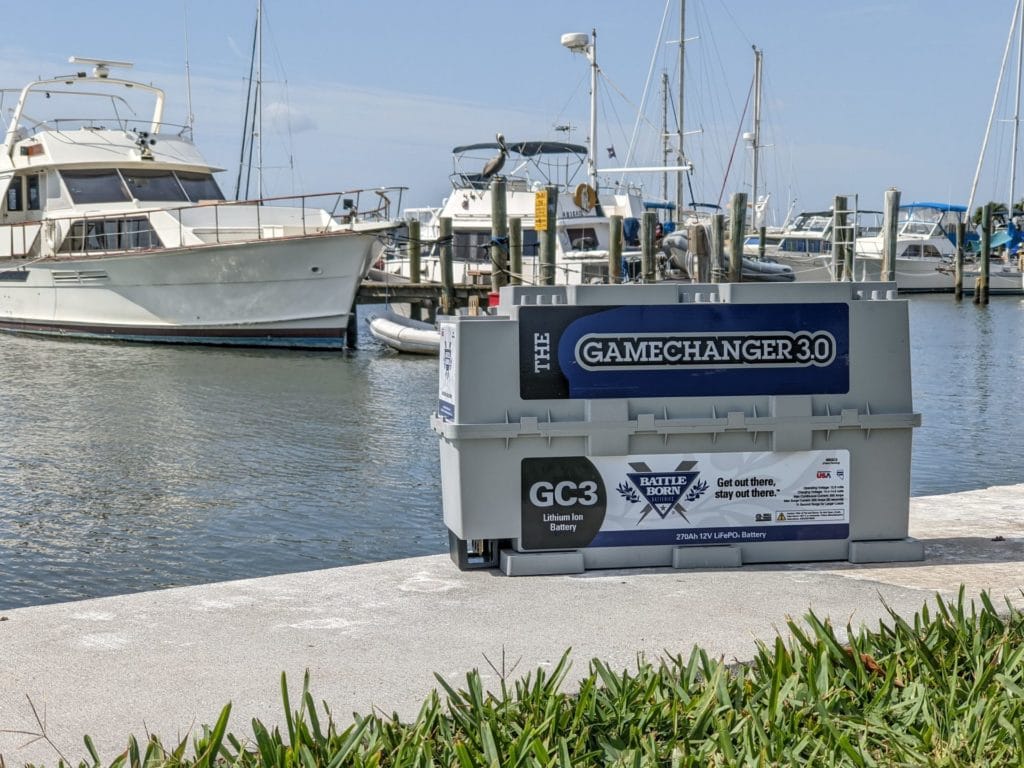
MENUMENU
TALK TO AN EXPERT
Special Hours: 7AM – 6PM PST
TALK TO AN EXPERT
Special Hours: 7AM – 6PM PST
The invention of lithium batteries has completely transformed our world. They power everything from our smartphones and power tools to large off-grid electricity systems and electric vehicles. They’re also extremely energy-dense, low maintenance, and have long shelf lives. But exactly how long do lithium-ion batteries last? And are they really worth the money?
Below, we answer these questions and more as we take a deep dive into everything lithium. That includes how long they last, whether or not they expire, and how you can get the most out of your investment. Let’s get started.

Lithium-ion batteries are the most advanced form of commercially available battery technology we currently have. They use lithium ions as the main component of their chemistry, which contain many more valence electrons than other battery types. This means they can store a lot more energy for their size.
Like all batteries, lithium batteries have an anode, a cathode, a separator, and an electrolyte. However, their electrochemistry is what makes them unique. They can use a variety of different materials for the cathode, but the most common are: lithium iron phosphate, lithium nickel manganese cobalt oxide, and lithium cobalt oxide.
As for the anode, the most common material you’ll find in lithium-ion batteries is graphite. It’s porous, has excellent conductivity, and has a good voltage match with the above cathodes. This combination of materials creates a battery that’s second to none when it comes to energy density, weightlessness, and longevity.

The answer to this question is going to depend on the battery. There are many different types of lithium chemistries and pack designs that vary drastically. For example, a pouch cell Lithium Polymer with a cobalt aluminum oxide chemistry may only achieve 100 discharge cycles. However, a high-quality cylindrical lithium iron phosphate cell could exceed 20,000 cycles under proper conditions.
Our Battle Born lithium batteries can last anywhere between 3,000 – 5,000 usable discharge and recharge cycles under real-world conditions. However, that doesn’t mean your battery will automatically stop working after discharging for the 5,000th time. It simply means that your battery won’t function as optimally as it did when it was new. In most cases, lithium batteries will still hold 75-80% of their energy capacity as they age.
We use high-quality lithium cells that are matched together to provide the longest-lasting safe battery pack possible.

While “3,000 – 5,000 cycles” is the standard lifespan of a lithium-ion battery, there are ways to extend the life of your battery so it averages closer to 5,000 cycles. First and foremost, make sure you’re using the correct battery charger for your lithium batteries. While lead-acid chargers may send power to your lithium batteries, they don’t charge them optimally. You probably won’t get an adequate depth of charge as you would with a lithium charger.
Second, it’s important to avoid completely depleting your batteries. Yes, lithium-ion batteries are amazing because they can handle a 100% depth of discharge and still work exceptionally well. However, if you can avoid doing this repeatedly, you’ll increase the lifespan of your batteries significantly.
Lastly, it’s best to avoid charging your batteries in extremely cold weather. While lithium iron phosphate batteries can handle dramatic temperature changes with ease compared to other types of batteries, they won’t allow a charge if their internal temperature reaches below 24 degrees Fahrenheit. This protects against lithium plating, which can be dangerous and cause short-circuiting.
Lithium batteries don’t necessarily expire, but they do experience a small amount of energy depletion when left sitting. Specifically, when left in the right conditions, our LiFePO4 batteries experience a 2-3% depletion each month. Thus, you may come back to completely dead batteries if you leave them sitting long enough without a charge. This does take a long time though, so if you’re storing your batteries over the winter, for instance, this is often not too long.

For our Battle Born lithium batteries we recommend disconnecting your batteries from any source of power draw. This includes radios, clocks, and other small power draws. Store your batteries with at least a 50% charge. If you store your fully-charged batteries in proper conditions, they can last an entire year. Any less, and they may not last as long.
Unlike lead-acid batteries, it’s not absolutely essential to remove your batteries and store them above freezing temperatures. In fact, your LiFePO4 batteries will be just fine in typical freezing temperatures as long as you fully charge them and disconnect them from any power source. Nevertheless, if you expect temperatures to plummet to below -15 degrees Fahrenheit, we recommend removing them and storing them at warmer temperatures.
➡ Read our article all about How To Winterize and Store Your Lithium Batteries
Yes! You can and should recycle your lithium batteries when you’re done with them. At Battle Born, we pride ourselves on creating batteries with no hazardous materials. However, batteries that still have a slight charge can pose a fire hazard if they are shorted out. Moreover, your lithium batteries contain critical and limited raw materials. In other words, once these resources are gone, they’re gone. Because of this, we need to reuse what we already have as much as possible in order to have batteries in the future.
So, what’s the easiest way to recycle your batteries? Start by returning them to where you purchased them. Most battery retailers have a system of recycling the batteries they sell. If they don’t, they’ll know where to point you.

When compared to lead-acid batteries of the past, lithium-ion batteries are truly superior in every way. They weigh less, hold more power, and have a lower self-discharge rate. They also require less maintenance and have a much longer lifespan. Yes, you’ll pay more in upfront costs, but the overall savings are significant. This is why we believe lithium-ion batteries are completely worth it. They provide a hassle-free, reliable way to store large amounts of power for when you need it most.
Do you have any questions about lithium-ion batteries? Leave them in the comments below!
Shop Best Sellers








Ask a technical specialist now at 855.292.2831
Stay in the Know